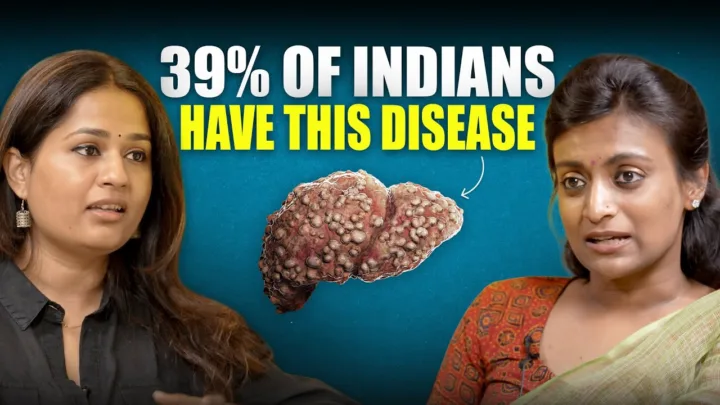Introduction
The liver, second only to the skin as the largest organ in the human body, performs over 200 critical functions, including metabolism, detoxification, and protein breakdown. Despite its importance, one of the most widespread and often ignored conditions affecting the liver today is Non-Alcoholic Fatty Liver Disease (NAFLD). This silent epidemic has become alarmingly common, affecting people across various demographics. But the good news is that with early diagnosis and lifestyle modifications, NAFLD can be reversed.
In this blog, we will explore what NAFLD is, its causes, symptoms, diagnosis, and prevention strategies, with a focus on Ayurvedic insights and modern medical approaches.
What is NAFLD?
NAFLD is a condition characterized by the accumulation of fat in the liver in individuals who consume little to no alcohol. It is increasingly being recognized as a global health concern and can be considered a metabolic disorder linked to obesity, insulin resistance, and poor lifestyle choices. Left untreated, it can progress to more severe liver conditions such as non-alcoholic steatohepatitis (NASH), fibrosis, and even cirrhosis.
Causes of NAFLD
While obesity is often seen as the primary cause of NAFLD, it is not the sole factor. Here are some major contributors:
- Sedentary Lifestyle: Lack of physical activity leads to poor metabolism and fat accumulation in the liver.
- Poor Diet: Consuming excessive fats, sugars, and processed foods can overload the liver.
- Insulin Resistance: A key driver of NAFLD, insulin resistance often leads to excessive fat deposition in the liver.
- Over-Exercising: Surprisingly, over-exercising without adequate recovery can also contribute to liver stress and fat accumulation.
- Sleep Disorders: Poor sleep quality and irregular sleeping patterns can significantly affect liver health.
- Medications: Certain drugs may lead to fat accumulation in the liver as a side effect.
Ayurveda, the ancient Indian system of medicine, emphasizes that an imbalance in lifestyle, diet, and mental well-being can also contribute to liver disorders.
Symptoms of NAFLD
NAFLD is often asymptomatic in its early stages, which is why it is commonly referred to as a silent disease. However, as the condition progresses, symptoms may include:
- Persistent fatigue and lack of motivation
- Unexplained weight gain or loss
- Abdominal discomfort or bloating
- Gas, belching, and gastritis
- Poor appetite or excessive hunger
- Constipation
- Unexplained back pain
- General lethargy and weakness
If you experience these symptoms, it is advisable to consult a physician for further evaluation.
Diagnosis of NAFLD
NAFLD is typically diagnosed through a combination of medical history, physical examination, and diagnostic tests. Key steps include:
- Ultrasound: A simple imaging test to detect fat accumulation in the liver. Grades of NAFLD (Grade 1, 2, or 3) are determined based on the severity of fat deposition.
- Liver Function Test (LFT): This measures enzyme levels such as SGOT and SGPT to assess liver health.
- HbA1c and Lipid Profile: These tests evaluate blood sugar and cholesterol levels, as NAFLD is often linked to metabolic disorders.
- FibroScan: In severe cases, a FibroScan may be recommended to measure liver stiffness and assess fibrosis.
Early diagnosis is critical, as it enables effective management and prevents disease progression.
Prevention and Management of NAFLD
- Lifestyle Modifications
- Balanced Diet: Focus on eating a nutritious, home-cooked, balanced diet. Avoid excessive fats, sugars, and processed foods.
- Hydration: Ensure adequate water intake to support liver detoxification.
- Moderate Exercise: Engage in regular but moderate physical activity. Over-exercising can be harmful, so balance is key.
- Sleep Hygiene: Maintain a regular sleep schedule and aim for 7-8 hours of quality sleep each night.
- Weight Management
- If you are overweight or obese, aim to lose 5-10% of your body weight under professional guidance. This can significantly reduce liver fat.
- Ayurvedic Insights Ayurveda places great importance on prevention. A few simple Ayurvedic principles include:
- Eating meals at regular intervals
- Avoiding excessive stress
- Incorporating liver-friendly herbs like turmeric and giloy
- Practicing mindfulness and meditation to reduce stress
- Medical Management
- Based on diagnostic results, your physician may prescribe medications or supplements to manage insulin resistance, inflammation, or cholesterol levels.
Reversal of NAFLD
The most encouraging aspect of NAFLD is that it is reversible in its early stages. With consistent effort, patients can achieve complete recovery. A few tips for reversing NAFLD include:
- Stick to a low-fat, high-fiber diet.
- Ensure regular monitoring of liver health through periodic tests.
- Avoid alcohol and smoking.
- Consult a healthcare professional for personalized treatment.
Conclusion
NAFLD is a growing concern that requires immediate attention. Although it is not often life-threatening in its early stages, ignoring the condition can lead to severe complications over time. Prevention and early intervention are the best strategies for managing NAFLD.
Remember, the liver is a resilient organ that can heal itself when provided with the right care. By adopting a balanced lifestyle, eating a healthy diet, and managing stress, you can ensure long-term liver health and overall well-being.
If you suspect you may have NAFLD, consult a healthcare provider for evaluation and personalized guidance. Take the first step today toward a healthier, happier life.






